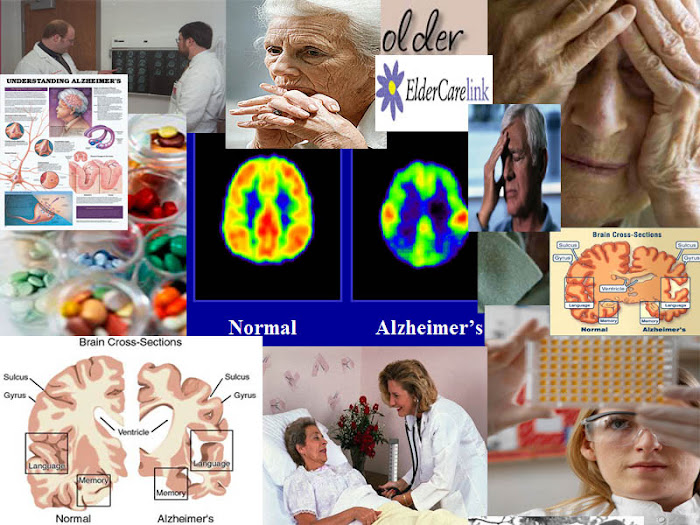Today I got through the majority of my "Project Guideline." That's basically just a word document full of my topic, essential questions, and will later include my 10 web sites. I thought it would be smart to get some of my major project concerns down in writing hoping that would make research and finding sites easier.
I am starting to get a little nervous as far as my topic, im starting to wonder whether or not it will make a great project like I want to put forth. Along with whether or not I will be able to make my point of the project clear.
Maybe I should talk to Mrs. Savito to make sure im on the right track and see whether or not my ill be able to get my project point across.
:/ :/ :/ :/ :/ :/
I LOVE DOM! <3
Subscribe to:
Post Comments (Atom)
Key Terms
- 1. Warning Signs: There are 10 classic warning signs of Alzheimer's disease, which include: memory loss, Difficulty performing familiar tasks, problems with language, disorientation to time and place, poor or decreased judgment, problems with obstract thinking, misplacing things, changes in mood or behavior, changes in personality, and loss of initiative.
- 2. Targeted Victims: Most patients with Alzheimer's disease are over 65 years of age.
- 3. Research: Researchers have learned most of what they know about Alzheimer's disease in the past 15 years. Researchers are looking for new treatments to alter the course of the disease and improve the life of the people with dementia. Healh professionals divide symptoms in "Congative, Behavioral and mental" this will help detemine which treatment is best to use in the different cases.
- 4. Counseling: Caring for the caregiver is an essential element of managing the patient with Alzheimer's disease. Caregiving is a distressing expeirence. On the other hand, caregiver education delays nursing home placement of Alzheimer's disease patients. (The three(3) R's: "Repeat, Reassure, and Redirect.") These can help caregivers reduse troublesome behaviors and limit the use of medications.
- 5. Treatment: There is no cure for Alzheimer's disease but there are drug and non-drug treatments that can help with both "Cognitive" and behavioral symptoms.
- 6. Alzheimer’s Disease: Is a brain disease that destroys brain cells which causes problems with memory, thinking and behavior. It is sever enough to affect work, lifelong hobbies, or social life. It gets worst over time, and is fatal. It is the sixth-leading cause of death in the United States.
Helpful Links
- Alzheimer's Association
- Alzheimer's Disease Research
- Alzheimers association:AD Facts & Figures
- Class Blog Center
- HelpGuide: Caregivers Guide
- HelpGuide: What Care Givers Need
- Knowing The Stages of Alzheimers
- Making the Diagnosis
- Managing Alzheimer's with Combination Care
- MedicineNet: Symptoms,Diagnosis,& Treatment (AD)
- Namenda: AD and Its Effects on The Brain
- Namenda: Symptoms & Stages
- National Institute of Aging
- Stages of Alzheimers
- WebMD
- What is Alzheimers
- wikipedia: AD Caregiving and Dementia
- Wikipedia:AD

No comments:
Post a Comment